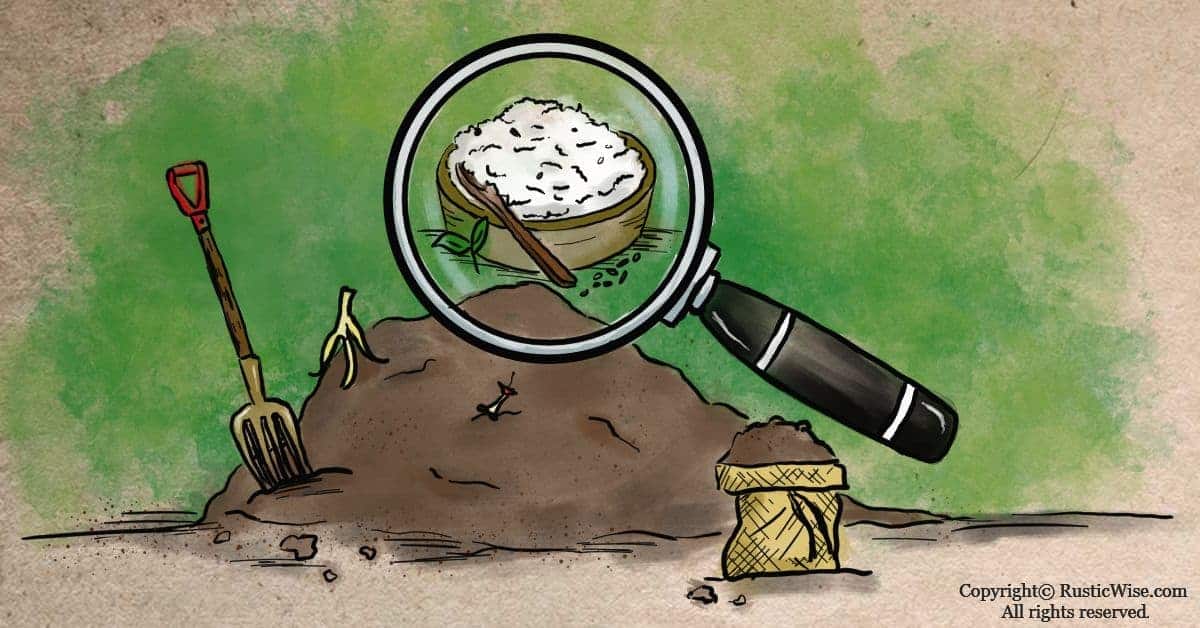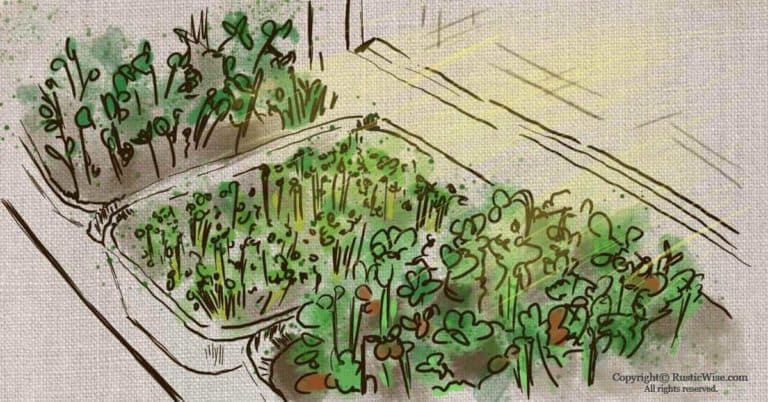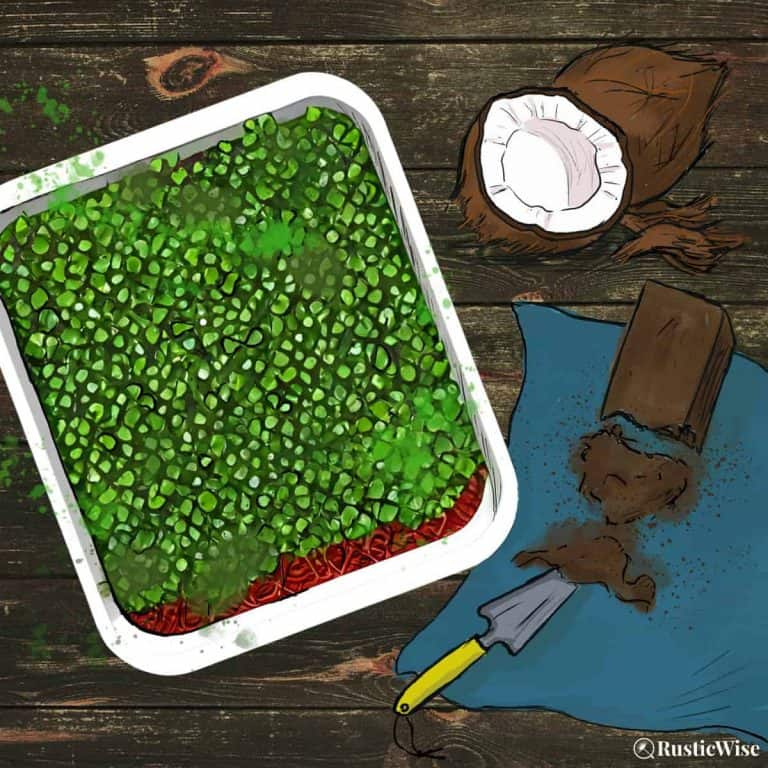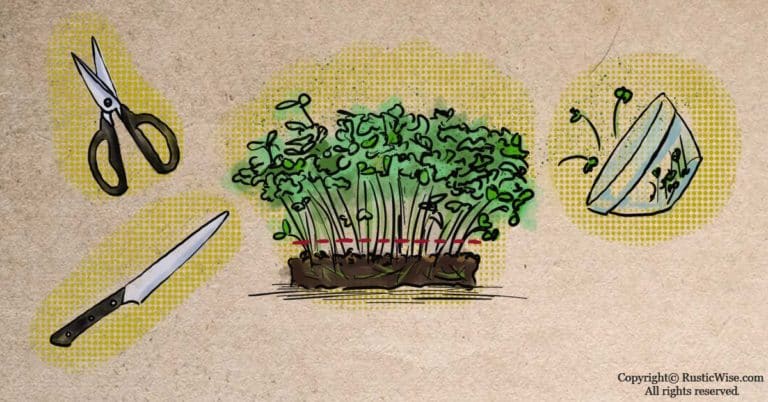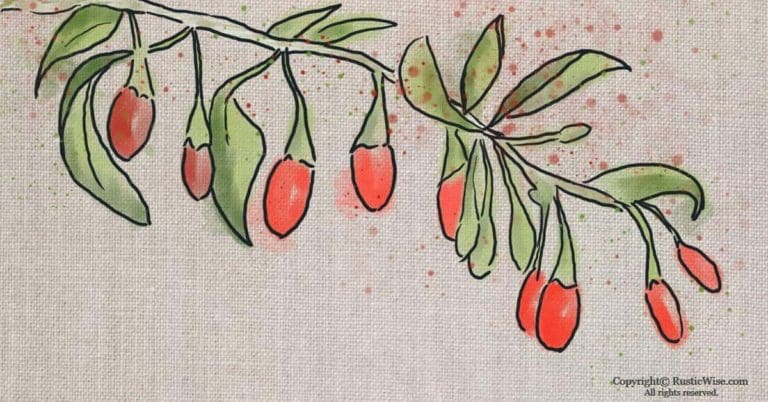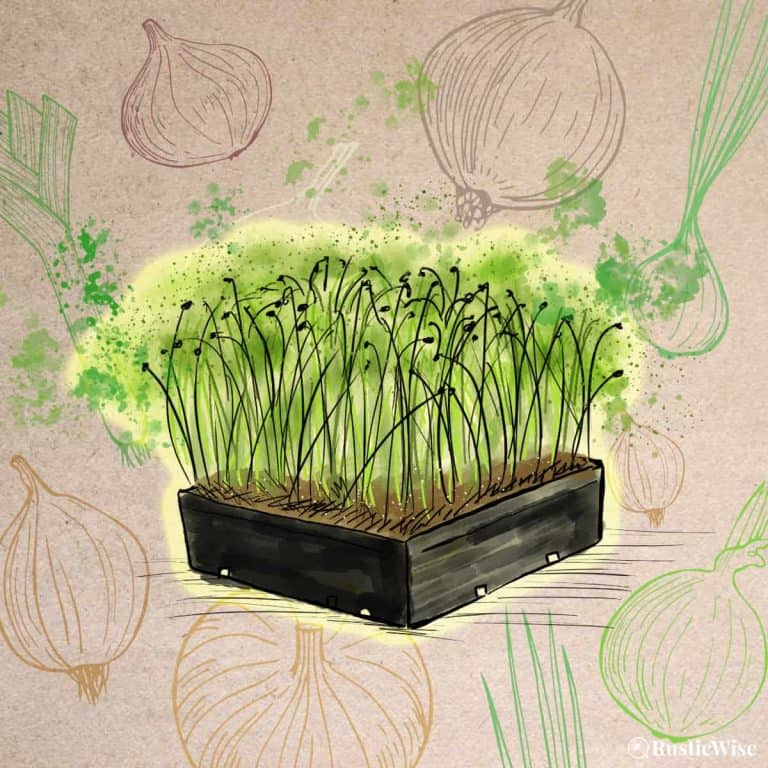Can You Compost Rice? How to Add to Compost Without Attracting Pests
Sometimes it’s hard to know what you can compost and what you can’t. Rice is a pantry staple, and a common question that arises is, can you compost rice? The short answer is yes, but depending on your compost setup, the answer is maybe you shouldn’t. While both cooked and raw rice are compostable, they need to be added sparingly to not attract rodents and pests. It’s best to add rice to a hot compost (to speed up the decomposition) or a covered bin.
Rice falls into a “gray” zone as it’s a bit tricky to get right, and may not be the ideal food to throw in the compost bin if you’re just starting out. It’s best to use caution when adding rice to a compost. The good news is that after reading the following tips, you’ll know exactly what to do with your leftover or spoiled rice. Just remember to add in moderation, and everything should be fine.
We’ll talk about some of the questions that come up with regard to rice and composting. And most importantly, we’ll offer tips for how to do it right. Let’s get started!
Why is rice so tricky to compost?
If you read up on composting rice on different online sources, about half say it’s totally fine, while the other half says don’t even bother! I am firmly in the “only-compost-rice if-you-do-it-right” camp.
Rice when cooked is heavy and sticky. As you can imagine, if added in large quantities, rice could clump and stick together. One of the elements every compost needs is oxygen to encourage healthy growth of microorganisms and to prevent foul odors.
If too much cooked rice is added, or if it’s not mixed well, it could create poor airflow, or create anaerobic (no oxygen) conditions. This of course would create a large, stinky, sticky mess!
The other potential problem with cooked rice that people are concerned about is that it may introduce harmful bacteria if it’s not decomposed quickly enough. However, this could be said with any type of food added to a compost.
Another concern with adding uncooked rice is that it may create a welcoming home for backyard rodents and pests. Raw rice grains provide a nice place for small critters to burrow in and make a home. If added in moderation and mixed well, this shouldn’t be a problem.
Did you know…Brown rice can also be composted. Brown rice contains the whole rice grain whereas white rice has the bran, germ, and endosperm removed.
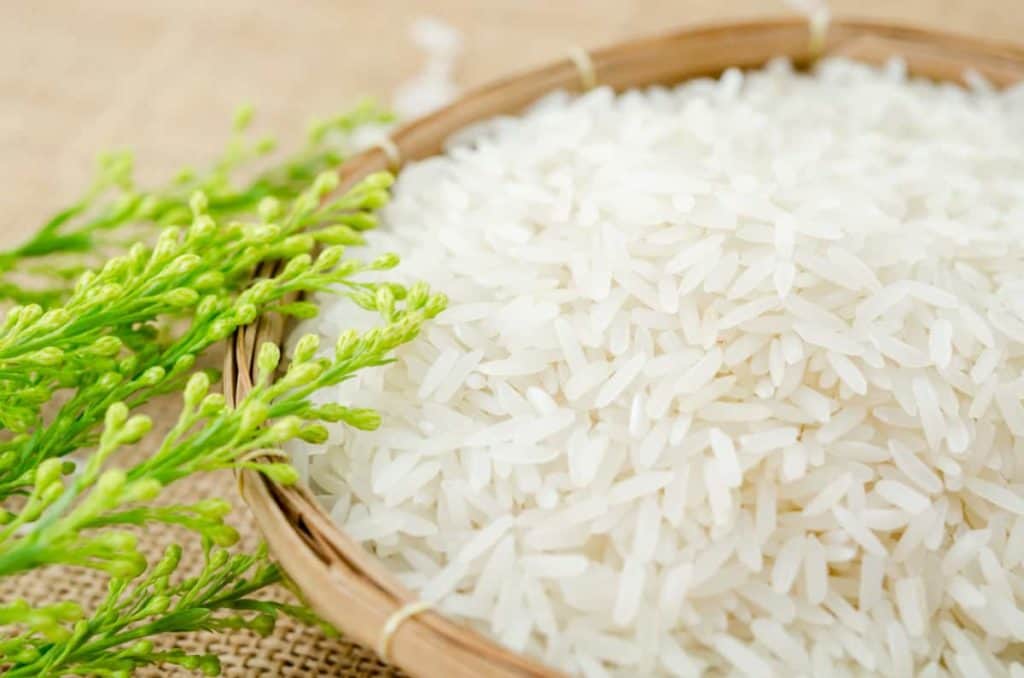
Is rice a “brown” or a “green” compost ingredient?
In composting terms, composting materials typically fall under the “green” or “brown” category. Just as not everyone can agree on whether or not to compost rice, rice is kind of tricky to categorize.
Green composting materials are nitrogen-rich. Nitrogen provides a quick form of nutrition for microorganisms and other helpful compost critters by allowing them to reproduce and grow quickly. Examples of “green” materials are kitchen scraps such as fruit and vegetable peels, and coffee grounds.
If there was a continuum of green and brown composting ingredients, rice would fall somewhere in between. Cooked rice would definitely be more on the “green” side—perhaps considered a moist, kitchen scrap along the lines of an apple core.
Uncooked rice, lacking the moisture, takes longer to break down. While rice might not have as much nitrogen as other kitchen scraps, it’s not carbon-rich like newspaper either.
Brown composting ingredients provide a steady source of carbon. Carbon provides an energy source for the microorganisms in a compost pile. These materials are slower to break down. Examples of brown materials are things such as cardboard, twigs, and dried leaves.
You need to get the right balance of carbon and nitrogen for a successful compost. Generally, most experts agree on a roughly 30:1 ratio, or 30 parts carbon to roughly 1 part nitrogen.
In more simple terms, this equates to ensuring your compost contains about half brown, and half green compost ingredients (2).
Most food waste (green material) has a carbon-to-nitrogen ratio of 20:1. On the other hand, shredded newspaper (brown material) has a ratio of 175:1. Rice would fall somewhere between these two, but somewhere closer to the “green” side.
The best ways to compost rice
Not everyone has a compost pile suitable for adding rice to. If you’re just starting out, and your compost pile is in its infancy, maybe it’s best not to add rice to it.
Tip: When adding rice to any compost, ensure it’s plain rice, and doesn’t contain any seasonings or sauces. Sauces and seasonings such as soy sauce, or butter may attract pests and create a foul odor.
If you have one of the following types of composts, you could probably safely add rice without any of the problems discussed above.
- Hot compost: A hot compost is one that’s active and working well. How hot is hot? A group of heat-loving bacteria called thermophiles thrive when your compost pile reaches temperatures of 104 to 158 degrees Fahrenheit (40–70 degrees Celsius). Hot composts are able to break down composting ingredients more quickly than cold compost piles. To achieve these temperatures, the compost pile needs to be fairly large, turned frequently, and fed a steady diet of greens and browns.
- Closed compost bin: If you have an enclosed bin such as a tumbler, this helps keep pests and rodents away.
- Vermicompost (or worm bin): Can you add rice to a vermicompost? Yes, your worms will probably love cooked rice (even if it’s a bit stale). It’s best to add a little at a time and avoid large clumps. Feed only what the worms can reasonably eat within a couple of days to avoid bad bacteria from forming on uneaten rice. And, remember to spread it out!
- Municipal composting program: If your municipality has a food composting program, rice (along with other starches like pasta) can be placed in your bin for pickup.
The importance of turning compost (especially when adding rice)
As we mentioned, one of the main problems with rice in compost is the fact that it can turn sticky and clumpy, stifle air circulation, and become an attraction for unwelcome pests if it takes too long to decompose.
The key to preventing many of these problems is in turning your compost frequently. While regular turning is important for any successful compost, it’s especially important when you add something trickier to compost such as rice. So grab a pitchfork and dig in!
The more often you turn your compost, the quicker composting materials break down. Here are a few ways that turning compost helps out:
- Prevents clumping
- Spreads moisture
- Infuses oxygen (which enables microbes to thrive)
- Speeds up decomposition of problematic components such as weeds or hard-to-compost foods like rice
- Reduces foul odors
Conclusion: can you compost rice?
If you have a lot of stale leftover rice, you’ll be glad to know that yes, both cooked and uncooked rice can be composted. But it should only be added under certain conditions. It’s best to avoid composting rice if you’re just starting a new compost heap, or if you’re new at composting in general. However, if you have a nice, hot compost going, rice should be fine to incorporate sparingly. Same goes if you have an enclosed compost bin such as a tumbler, or a vermicompost—add rice a bit at a time and mix it well!
Related questions
Can you compost old fried rice?
No, fried rice contains several ingredients that you should not add to compost including oil, seasonings, and meat. Adding any type of kitchen grease or oil and especially meat will attract a hoard of unwelcome backyard critters to your compost heap. Not to mention that these items will create quite a stink!
Can you pee on a compost pile?
At first glance, this question seems absurd. But, it turns out that urine is liquid gold in the garden. If you examine what’s exactly in human urine, it comprises over 90 percent water plus trace minerals and vitamins. The rest of urine consists of urea, a compound that’s rich in nitrogen.
In fact, urea is used in synthetic fertilizers. Human urine is so high in nitrogen that if you were to use it as a natural fertilizer, you would need to dilute it with plenty of water first to avoid burning the plants.
So, if you have a backyard compost, a wee bit of urine may actually prove to be a good compost stimulator.

References
- University of Florida, Institute of Food and Agricultural Sciences, Can I Compost It? https://sfyl.ifas.ufl.edu/sarasota/natural-resources/waste-reduction/composting/what-is-composting/what-can-be-composted/can-i-compost-it/. Accessed June 2021.
- Foster, Clare (2014). Compost: How to make and use organic compost to transform your garden. Mitchell Beazley. ISBN 978-1-84533-895-4.
- Planet Natural Research Center, Carbon-to-Nitrogen Ratios, https://www.planetnatural.com/composting-101/making/c-n-ratio/. Accessed June 2021.
- University of Florida, Institute of Food and Agricultural Sciences, Managing a Compost System, https://sfyl.ifas.ufl.edu/sarasota/natural-resources/waste-reduction/composting/what-is-composting/manage-a-compost-system/. Accessed June 2021.
- Worm Farming Secrets, What types of food stuffs should not be put in the worm bin?, http://www.wormfarmingsecrets.com/worm-composting-food/what-types-of-food-stuffs-should-not-be-put-in-the-worm-bin/. Accessed June 2021.
- Engels, Jonathon (13 October 2017), “How Do You Use Urine?“, Permaculture News, Accessed June 2021.

Author: Theresa Tesolin
Theresa is co-founder of RusticWise. She helps people unleash their inner DIY spirit by encouraging them to get dirty and make or grow something from scratch.

